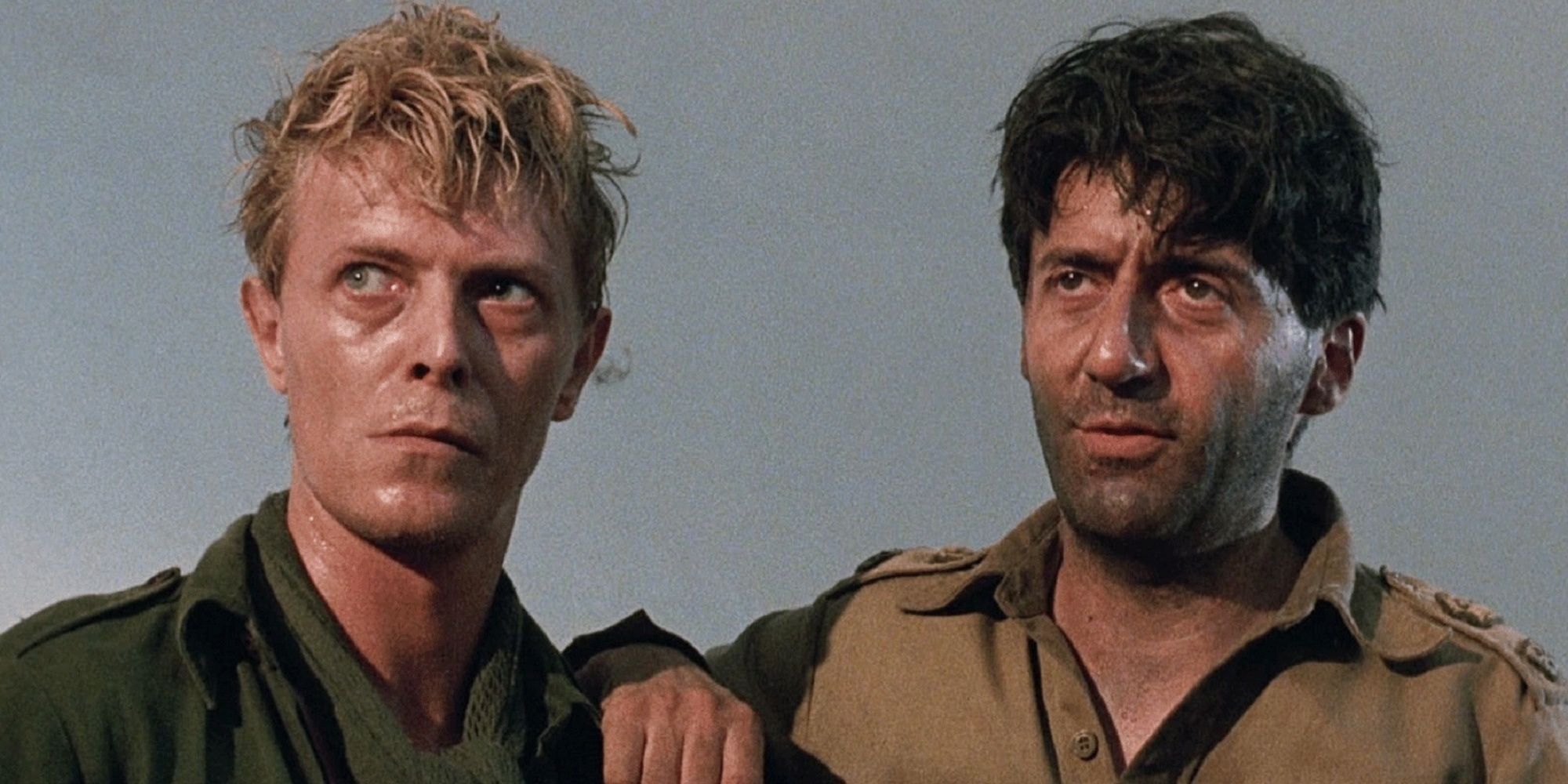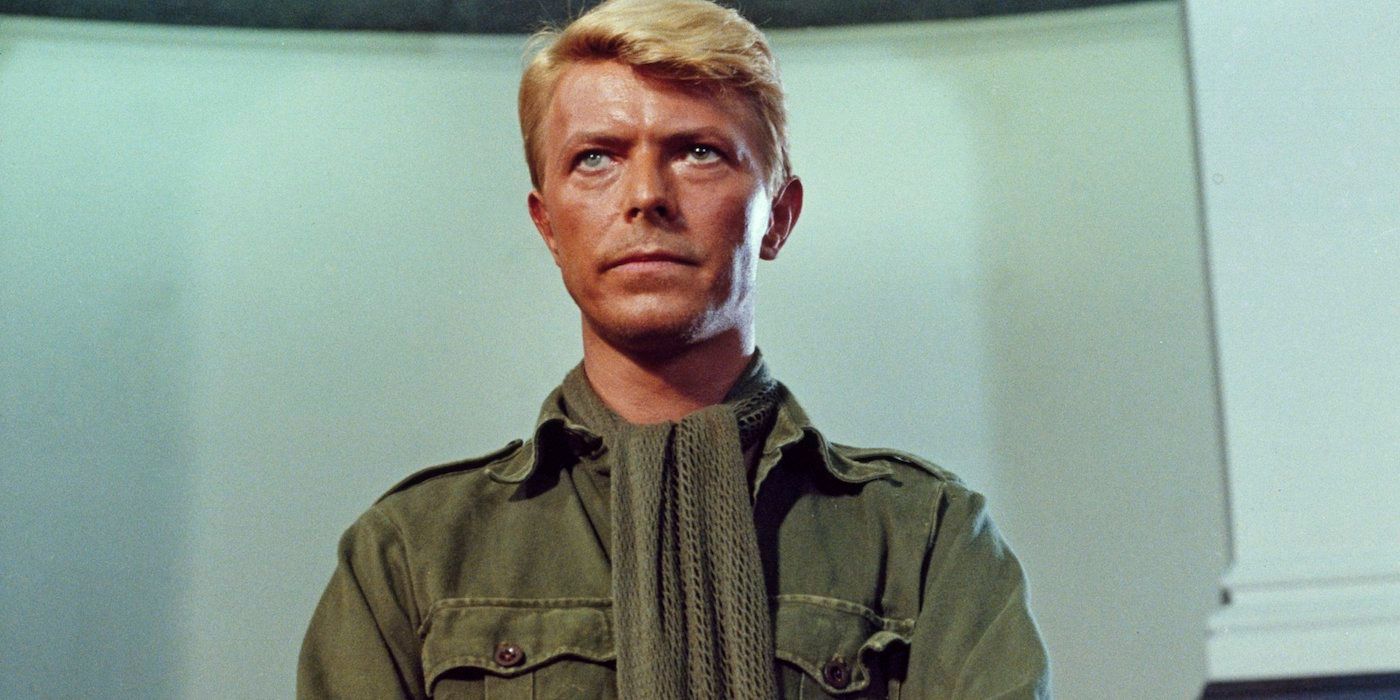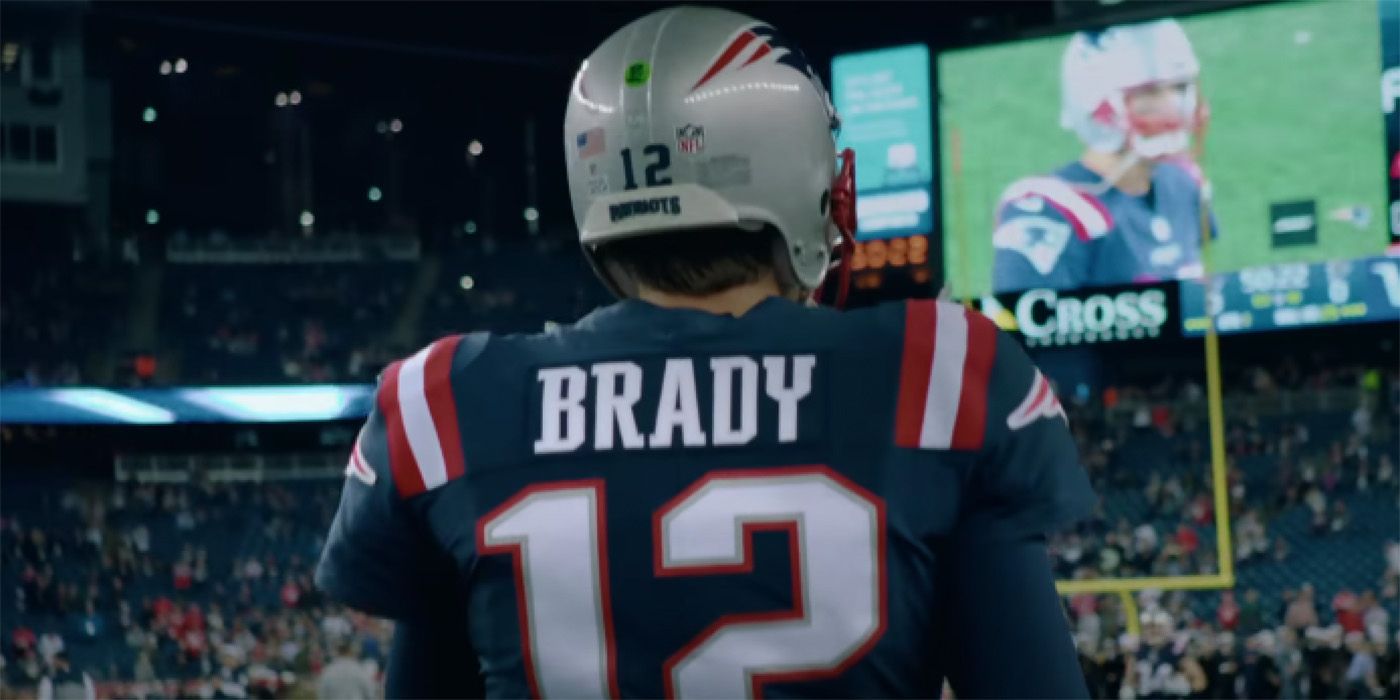The Big Picture
- David Bowie’s performance in Merry Christmas, Mr. Lawrence is his best because of his magnetic on-screen presence, conveying emotions through his cold and calculated stares.
- The film explores the importance of tolerance in the face of war, depicting the clash of cultures between the British and Japanese soldiers.
- Bowie’s involvement in the film impacted his musical career and highlighted his ideals as a musician, celebrating differences and inspiring generations to be proud of who they are.
While Jim Henson’s Labyrinth probably features what has come to be known as David Bowie’s most iconic role (outside that tiny little music career of his, that is), fans of the film might be disappointed to know that it was far from the legend’s greatest appearance on the big screen with 1983’s Merry Christmas, Mr. Lawrence featuring his best performance in a starring role. Ironically for a film that doesn’t feature any of its characters playing instruments or singing songs, the film starred another megastar musician in the form of Ryuichi Sakamoto, a pioneer in the Japanese electronic music sphere and composer of several timeless classics, including The Last Emperor and The Revenant. Beyond that, it also marks the acting debut of auteur filmmaker Takeshi Kitano and features another starring performance from Tom Conti, the man who played Einstein in Oppenheimer. It’s fair to say that the cast is stacked on this one, but with the film turning 40 this year, it’s time to look back on the one who brought them all together as well.
Merry Christmas, Mr. Lawrence was directed by Nagisa Ōshima, one of the most prominent filmmakers behind the Japanese New Wave whose credits include In the Realm of the Senses, known for the unsimulated sex that runs throughout. Merry Christmas, Mr. Lawrence doesn’t prove as controversial as the director’s prior work but does however supplement with weighty themes and star-making performances in one of the most astounding calls for tolerance ever put to film. The film concerns the lives of a troop of British soldiers held captive by the Japanese during WWII under grueling conditions. Food is low and abuse in the face of authority is commonplace but amid that, several homoerotic tensions develop between imprisoned Major Jack “Strafer” Celliers (Bowie) and Captain Yonoi (Sakamoto), who develops suppressed feelings for Celliers after admiring his resilience in the face of imprisonment. Observing this situation are Lieutenant Colonel John Lawrence (Conti), the only Japanese-speaking POW, and Sergeant Gengo Hara (Kitano), who grows fond of the British and strikes up an unlikely friendship with their interpreter.
Why Is David Bowie’s ‘Merry Christmas, Mr. Lawrence’ Performance His Best?
What makes Merry Christmas, Mr. Lawrence the best David Bowie performance isn’t his musical ability but his magnetic on-screen presence. Bowie doesn’t sing a word throughout the film and even remarks that he wishes he could sing at one point (fans of his must have gotten the biggest chuckle of the film with that line) but rather, expertly controls his demeanor to convey an essay’s worth of words with a series of cold and calculated stares. The credit here belongs just as much to Ōshima, whose mastery of composition (a Japanese specialty if the work of Yasujirō Ozu is anything to by) allows him to knowingly place Bowie’s stern facial expressions of war-torn angst at the center of the most effective surroundings. These include moments like Celliers devouring a flower before his Japanese imprisoners in an act of protest for their declining food rations, or the sharp movements behind a climactic kiss in the face of hatred. Throughout all of these scenes, it’s Bowie’s stillness that sells the frame.
One of the earlier and most effective examples includes Celliers’ arrival, in which he’s almost immediately taken to face death before a firing squad. Though they attempt to blindfold him, Celliers refuses, to which his executioner insists that the blindfold is in fact for the firing squad (a metaphor for the audience in this case), to spare them from looking into his eyes while he’s dying. Celliers, whose arms are held by chains in Christlike poise, still refuses to blink, even after the guns are fired. As it turns out, the bullets were blanks, but it’s not that Celliers refuses to show fear in this situation that impresses the Japanese. The fear can be seen across his entire panting body. What’s incredible about Bowie’s performance is that he manages to illustrate his character rising above his fear, rather than purging it completely. It’s not about grand, sweeping movements, but a single gaze of terror before the thought of certain death.
‘Merry Christmas, Mr. Lawrence’ Calls for Tolerance of All Kinds
The most pivotal theme of Merry Christmas, Mr. Lawrence is without a doubt the importance of tolerance, particularly in the face of war. With the Japanese and the British doing battle with one another (and in the 1940s no less), it must be appreciated just how alien one another’s cultures must have seemed to them, devoid of the context or information that the globalization of something like the Internet could provide. The Japanese deem the British cowards while the British deem the Japanese madmen for their willingness to commit seppuku (several times throughout the film) for the sake of reclaiming their honor in self-inflicted death. The Brits plea for mercy while the Japanese authority dictates that it cannot do so without appearing weak. The film is above all a depiction of the clash of cultures that war brings about, as Lawrence and Hara are forced to try and convince their own people that the other side is worth at least attempting to understand.
Underlying the tensions between cultures is a series of flashbacks that recall Celliers’ own failures when it comes to appreciating the differences of human beings. While imprisoned, Celliers recalls his brother who was constantly bullied for his hunchback and high-pitched singing voice. When Celliers’ brother (played by James Malcolm) is accepted into Celliers’ prep school where he reigns at the top of his class, he’s bullied senselessly by hundreds of intolerant students, deeming it easier to ridicule the boy’s differences rather than accept them. In another masterful use of framing, the scene is depicted with hundreds of students humiliating the young boy as he calls out for his brother to help him. Celliers, ashamed of his association with his brother, hides behind a wall in the frame’s corner, suppressing the entirety of his love for a being so close to him, all because he doesn’t quite fit in.
It’s important to note that the film’s homoerotic undertones are never addressed, and any viewer would be forgiven for overlooking them if not for Celliers’ kiss towards Yonoi, a romantic gesture of understanding. The significance of this moment lies in the realization that Captain Yonoi has repressed aspects of his true self in order to adhere to the samurai code that he upholds so vigilantly. The film’s final scene sees Lawrence and Hara chatting towards the end of the war, where Lawrence admits that in spite of the Allies’ victory against the Axis powers, “we were all wrong”. The film’s title, Merry Christmas, Mr. Lawrence, chronicles the words that Hara speaks to Lawrence over acts of mercy towards the troops as a result of his growing appreciation for their culture. The very words behind Merry Christmas, Mr. Lawrence thus become a symbol for tolerance of all kinds, whether physical, sexual, or cultural.
How Did Starring in ‘Merry Christmas, Mr. Lawrence’ Impact David Bowie’s Musical Career?
Throughout filming, David Bowie formed a particular bond with James Malcolm, the actor who portrayed his on-screen brother. Bowie would later call Malcolm his “New Zealand brother” and the very next year invited him to the stage of his concert in Auckland, New Zealand, and the two, in front of 80,000 people, released a dove as a sign of peace. It’s a remarkable gesture forged from the meaning behind the film that they made together, and one that illustrates an understanding of what peace really means. The concept of peace doesn’t just constitute people of foreign nations living independently, minding their own business, but accepting and celebrating differences rather than fashioning them into a barrier. Peace without unity is only half the job.
While there’s plenty to love about Labyrinth and the manner through which it leans into the more eccentric aspects of Bowie’s star persona, Merry Christmas, Mr. Lawrence is the David Bowie film that most genuinely reflects his ideals as a musician. Bowie was one of the icons for homosexuality, bisexuality, and gender fluidity whose glam inspired several generations, telling them that it’s okay to be as loud as you can be about who you are, even if it’s different from the rest. There’s no better film that encapsulates that very feeling, and the millennia of suppression that came prior, than this.






